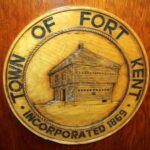August is back-to-school season, when Maine families adjust to new schedules, new spending on school supplies and new household budgets. National Financial Awareness Day is Aug. 14, which reminds families to be more aware of money coming in and going out.
You don’t need to wait until New Year’s to make a resolution to improve your relationship with money. And you may be surprised by what you find — recurring expenses you forgot about, spending on small purchases that add up quickly, fees you may be incurring, etc.
Financial awareness also means being willing to test your own assumptions about money; as the saying goes, “You don’t know what you don’t know.” Being a parent, I know money can be an uncomfortable subject, especially when a family’s health, safety, security and well-being are so directly connected to it. But if money isn’t talked about at home, is it talked about at school? Not always.
Maine high schools do not have a stand-alone personal finance course requirement, according to the Nation’s Report Card on Financial Literacy, which grades Maine “B” for providing financial literacy instruction in grades K-12 through its social studies standards. Yet adults are expected to understand how to buy vehicles, properly use credit cards, understand credit scores, apply for mortgages, file taxes and pay bills.
As a financial counselor, I help answer people’s questions about money, often encountering misconceptions. I have seen firsthand the need for financial education in Maine communities, especially in households where there may not be adults who can pass on financial skills. Financial institutions with trained educators on staff can play a key role in delivering financial education where it’s needed most.
Working in communities throughout northern Maine, these are some of the things I most often hear.
“Credit cards are bad. Never get one.” The truth is that building and maintaining good credit is important and can be done with proper credit card use.
“What is overdraft protection?” Overdraft protection is a common bank account feature designed to protect you from declined transactions or overdraft fees should you have a transaction that exceeds your balance.
“When should I start establishing credit?” It’s very important to start establishing credit when you are a young adult, especially if you do not have access to a cosigner. Credit is vital to obtaining things like cell phones, auto loans, insurance, and apartment rental.
“Unpaid utility and insurance bills don’t hurt my credit.” This is false. Unpaid utility and insurance bills can be reported as collection items, which will negatively affect your credit rating.
“What is the best thing I can do to improve my credit score?” Your credit score is based 35 percent on making timely monthly payments. A single late payment can negatively impact your score significantly. Make sure you are making your minimum monthly payments, and the best way to do this is to avoid maintaining or carrying a balance.
Whether you are a parent responsible for your children’s financial education or an adult responsible for your own, there are resources readily available to you to learn more and get your questions answered. Talk to your local financial institution about available educational resources. If you’re having open conversations about money, working to set a good example with your financial decisions, and taking an active role in seeking out and connecting (your family and yourself) to financial education resources, you are taking important steps toward financial wellness.
Jennifer Deschene is a community engagement manager at University Credit Union in Presque Isle. She is a certified credit union financial counselor with more than 20 years’ experience. She resides in Presque Isle with her family. She can be reached at jdeschene@ucumaine.com. For information visit ucumaine.com/member-education.





